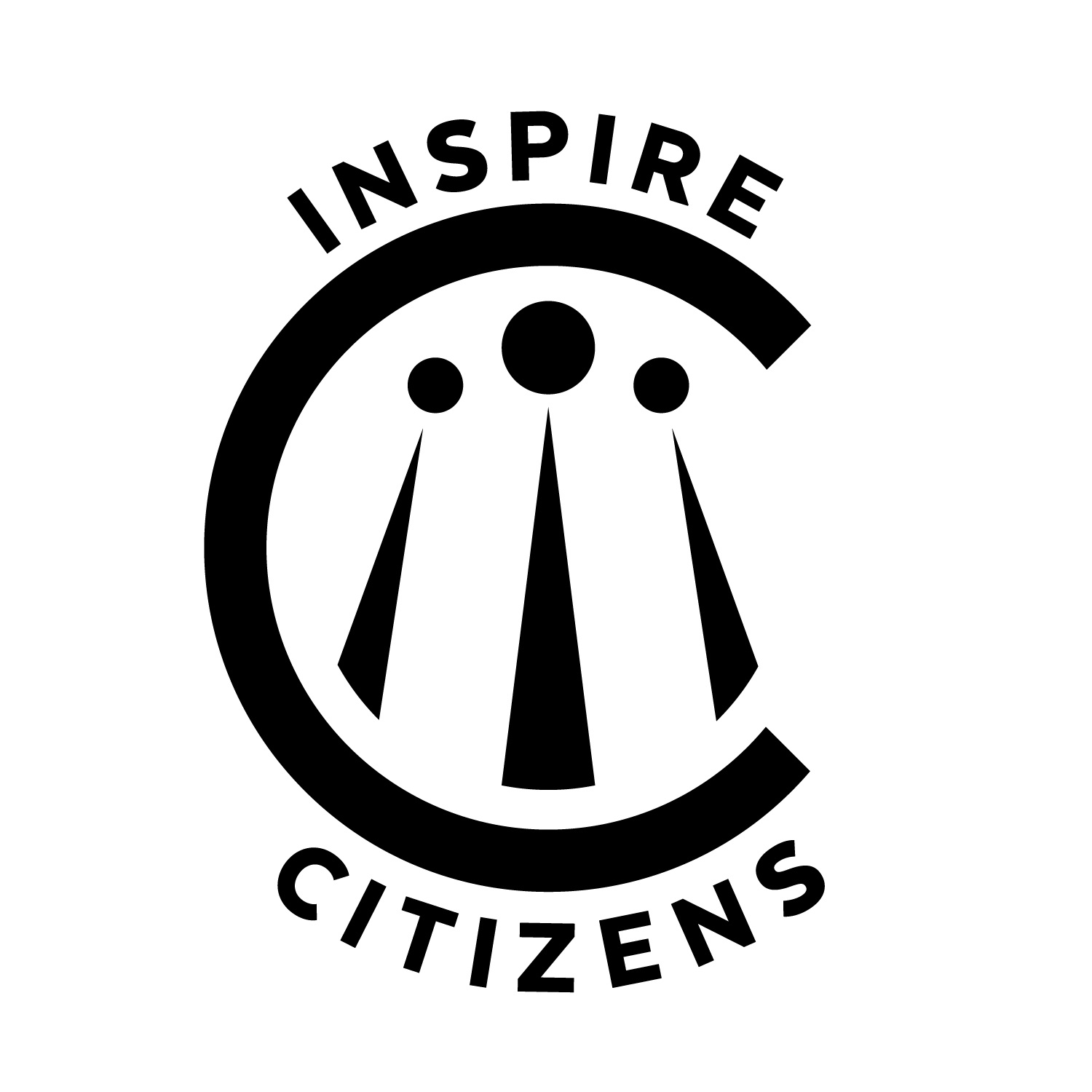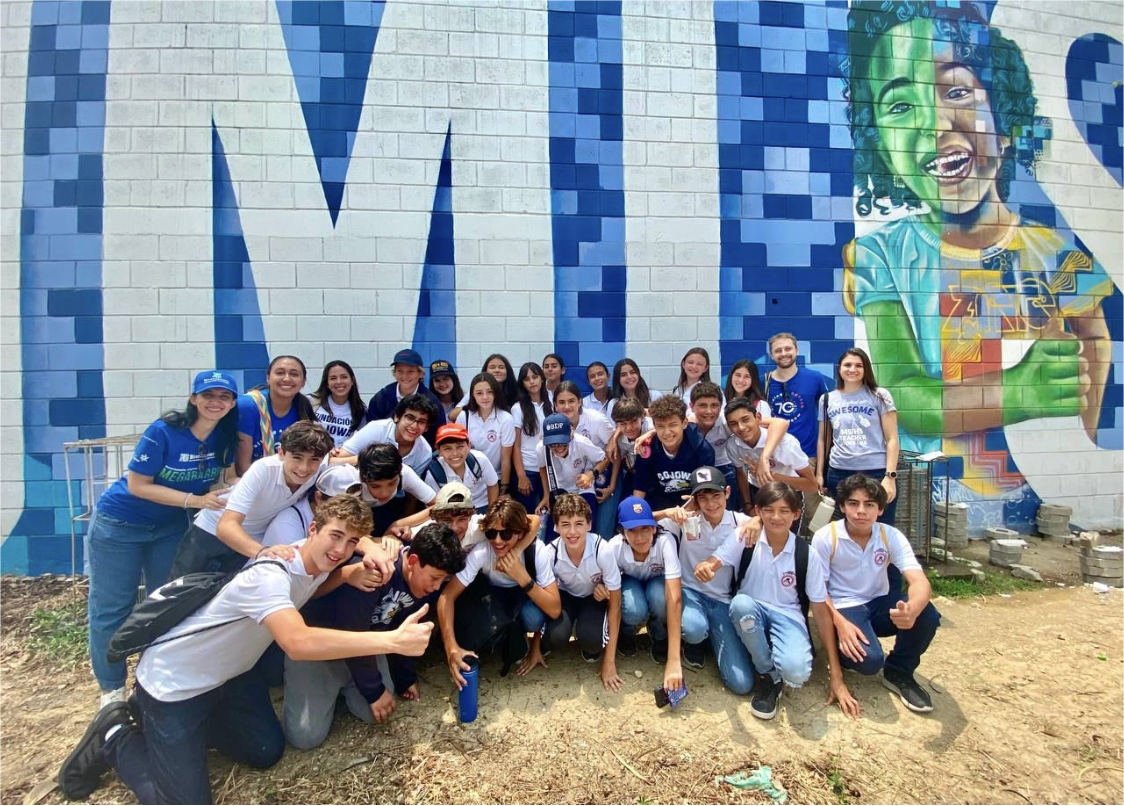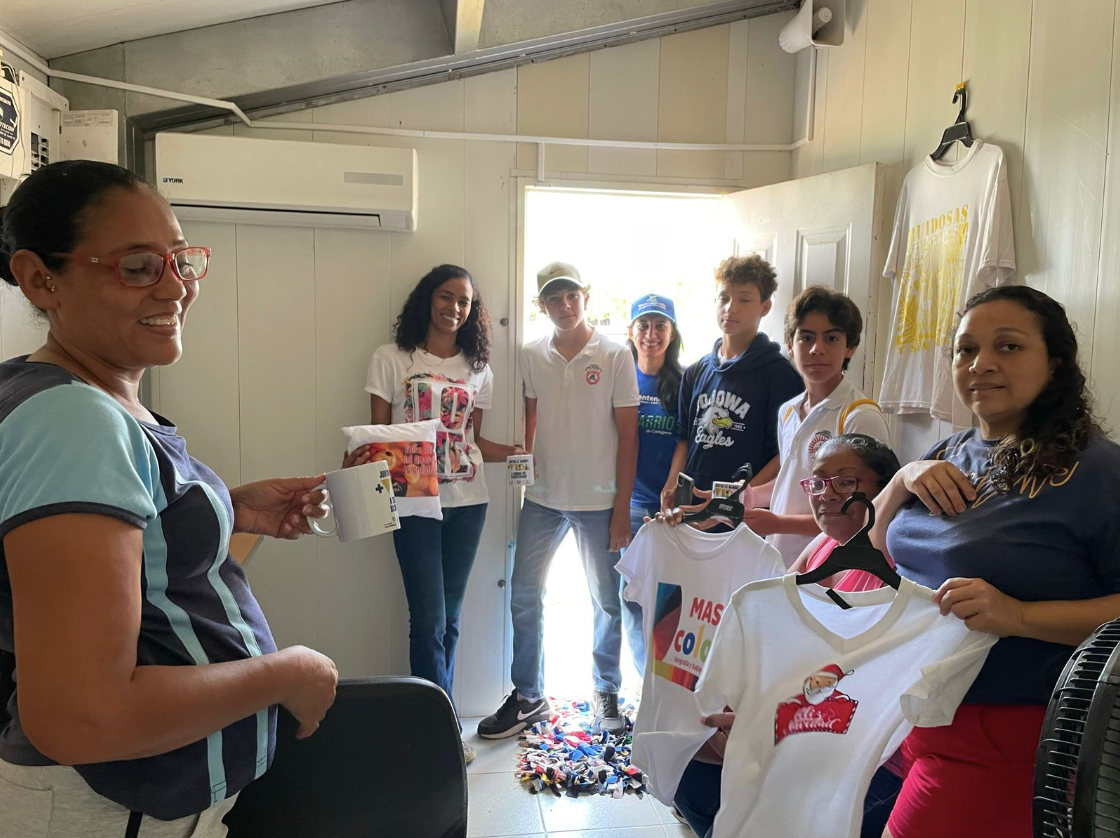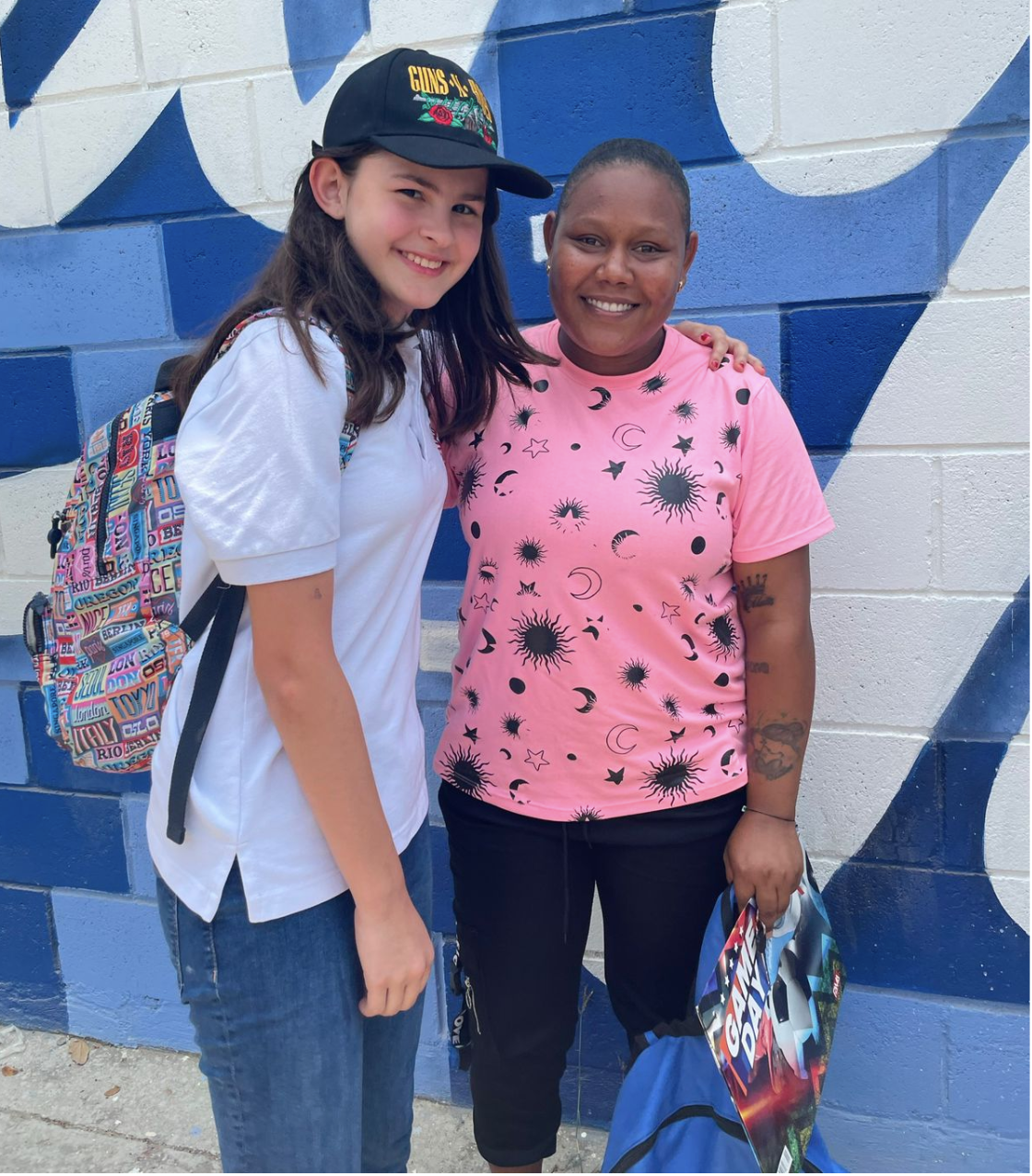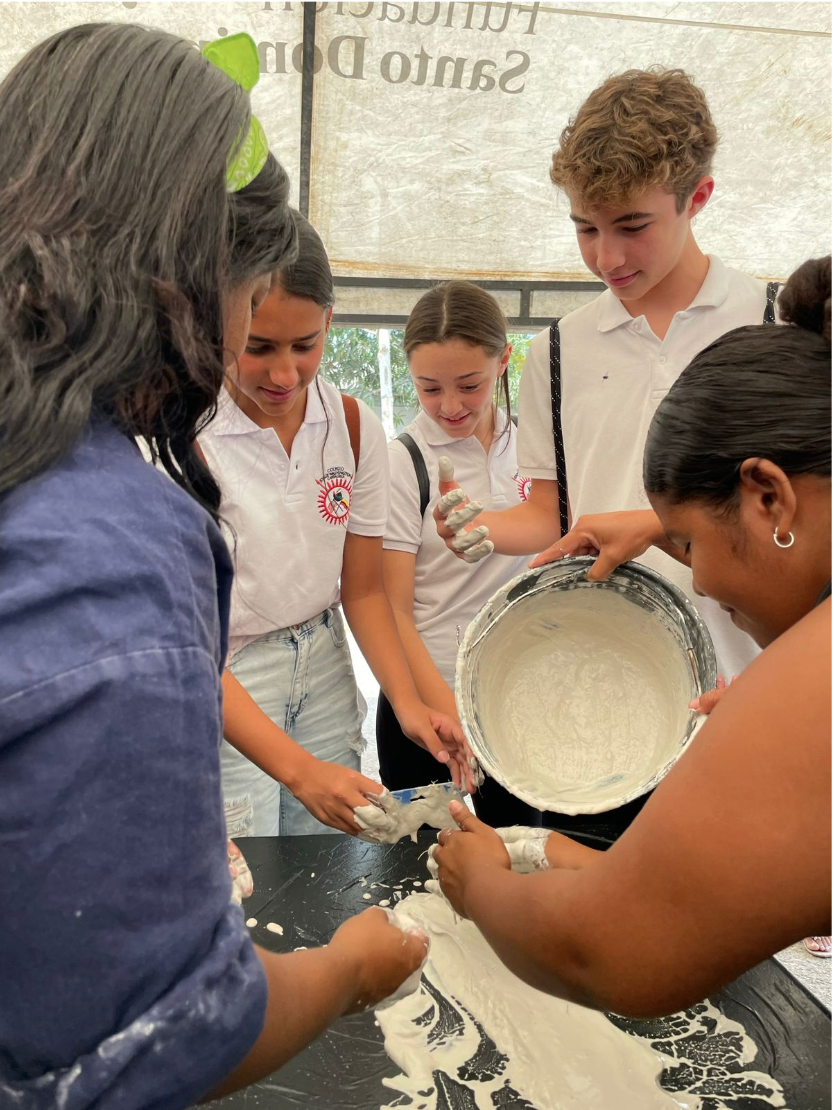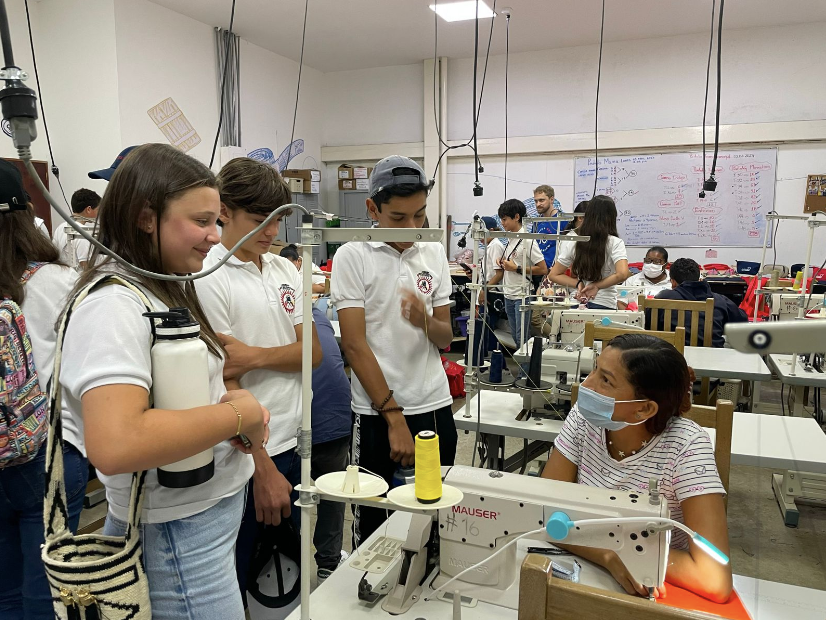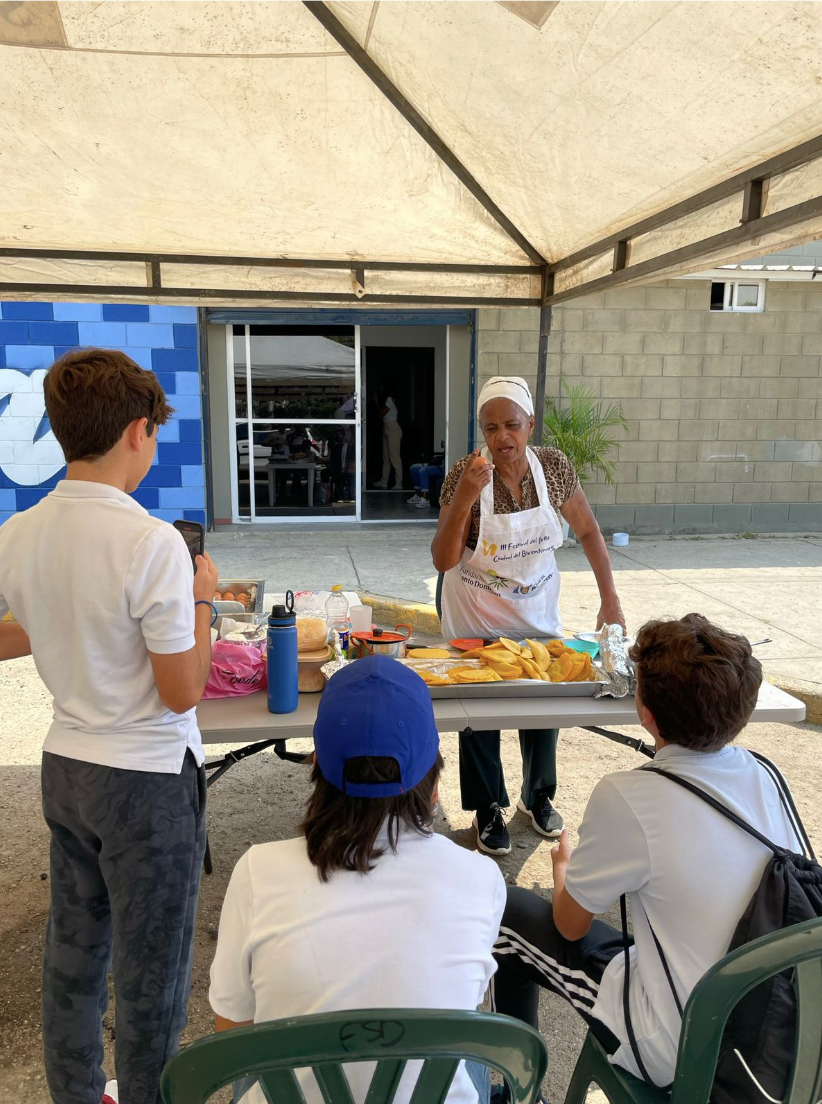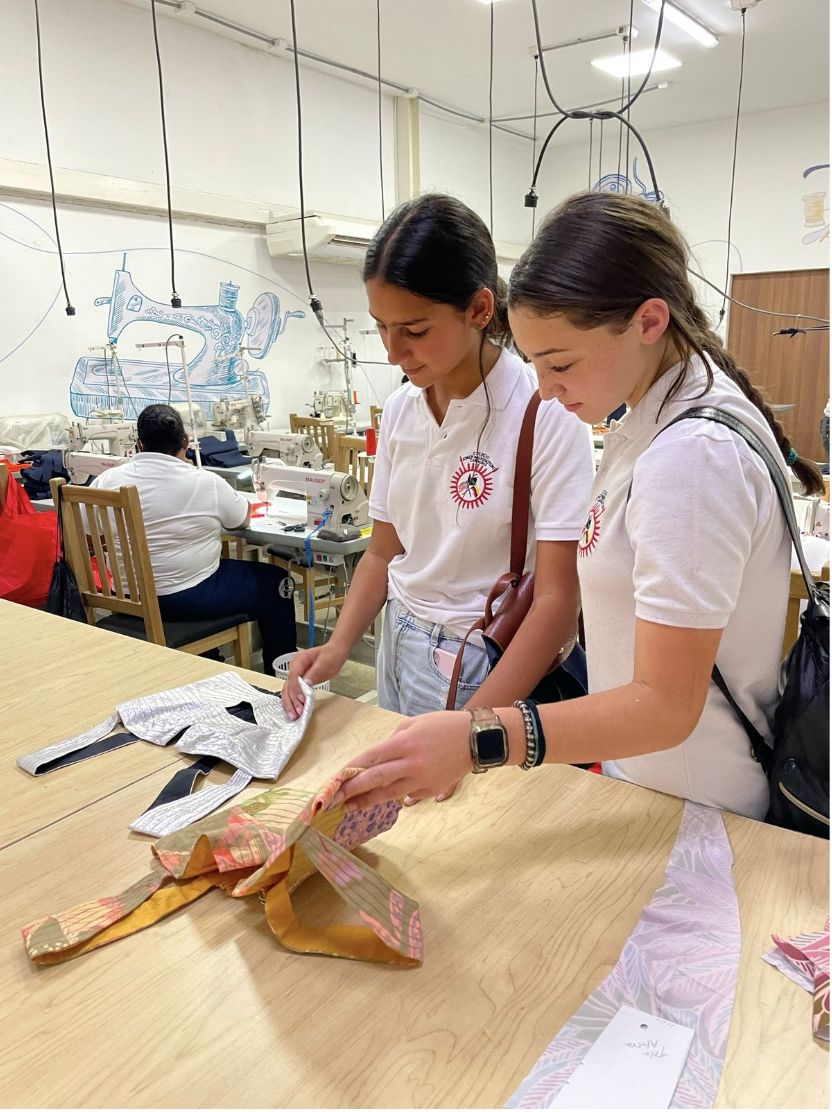Deep Partnerships with Local Communities: a Grade 7 Example
Grade 7 COJOWA students on a field trip to the Bicentenary neighbourhood in Cartagena with community partner Fundación Santodomingo.
At the end of March, grade 7 students at the Colegio Jorge Washington (COJOWA) in Cartagena, Colombia, embarked on a powerful learning investigation.
Their goal was to learn more about SDG #5 (gender equality) in the local context; in their social studies and Spanish classes, they began reflecting, questioning and thinking about the local community.
What followed was a rich learning journey involving journalism and sustainable solutions to needs related to clothing and textiles.
Some background:
On March 24th, the interdisciplinary unit (social studies and Spanish) launched with students reflecting on core questions about gender equality and ways of investigating a community issue. Guest speakers (such as a local journalist and representatives from Fundación Santo Domingo, a local organization doing sustainable development work in nearby communities) came into classes to speak with students and share expertise and skills.
These initial learning activities culminated in a field trip to the Bicentenary neighbourhood to see what the Fundación Santo Domingo is doing in that community.
“The Foundation is transforming this area by creating housing projects as well as parks, sidewalks and roads. As they build new homes, they’re also trying to find new work opportunities for people including jobs for women in new areas like construction,” explains COJOWA Community Engagement Coordinator Jessica Benitez. “This new city is on the edge of town. Many women there are isolated because they have to stay home with their kids or travel long distances to get things like groceries or supplies. In this community, everything is designed to be 15 minutes apart in terms of walking distance, which should provide more liberty and freedom for the women, as well as employment opportunities; many women have commented on how this is allowing them to spend more time with their kids and at work.”
In this context, the students were able to meet the women and learn more about what they need in relation to SDG goal #5.
The Learning:
“We developed a journalism component in this unit,” explains Spanish teacher Yuli Paez. “The students have been so engaged with this service learning experience through interviewing people they know. They’ve had the opportunity to record their interviews and transfer some of what they’ve learned into stories. It’s been a different way to learn about the topics in our curriculum.”
Jay Vranicar, a grade 7 social studies teacher, agrees. He says there’s been “higher engagement and application of skills related to the standards” as well as “a real-world context with community partners”.
Standards related to writing and asking questions have been addressed through community interviews and creating stories for a magazine to share with the school community. In US history, standards will be addressed by students comparing and contrasting industrialization with current community challenges for women.
“Making these connections is so engaging for students, especially when they start to see the connections themselves,” comments Inspire Citizens facilitator Scott Jamieson.
Reflection has been purposefully embedded throughout the learning cycle, with students writing and producing short videos for each part of the Empathy to Impact process (care/aware/able/impact). There is reflection on academic learning as well as personal growth and global citizenship.
Service as Action:
Based on interviews with local women, presentations by representatives by the Fundación Santo Domingo and the field trip, students proposed several ideas for acting in a reciprocal and sustainable way. Three key action components emerged:
Women from the local community will be invited to sell homemade pastries on the COJOWA campus as a way to earn income.
Clothing will be collected and shared with women seeking employment in the local construction industry and other jobs so there is access to appropriate clothing for interviews and work.
Students are working with a local textile project to investigate upcycling old and unsold school uniforms into new products (such as pencil cases). These products will be sold in the school shop, with proceeds supporting women in the local community.
“We’re building a long-term partnership with the Fundación Santo Domingo and impact is key,” reflects Jessica. “Next year, as the current seventh graders move into eighth grade, they will hand this project over to the new group of learners, and some students may continue engaging with the partner through the Sustainability Club.”
Aaron Moniz, co-founder of Inspire Citizens, applauds the work of the COJOWA seventh grade team and other teams in the school. “We have created such a powerful partnership and you are leading this work with your students in an amazing way. The lives of others in your community are impacted because of what you’re doing.”
Scott agrees. “This is what we believe education should look like and you have made it happen,” he smiles.
Below: images of grade 7 students partnering with community members from the Bicentenary neighbourhood in Cartagena through projects with community partner Fundación Santo Domingo.
